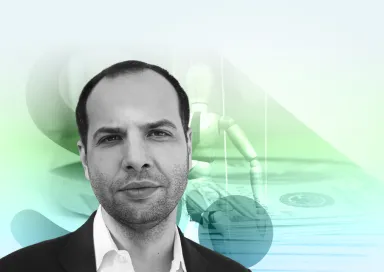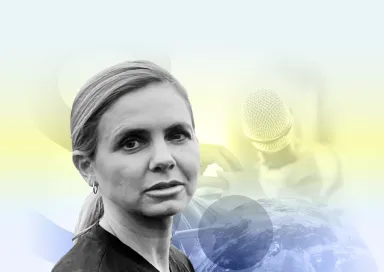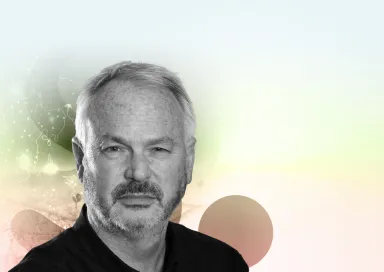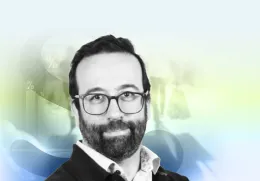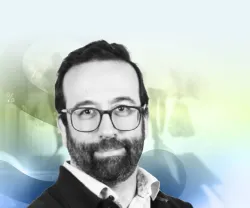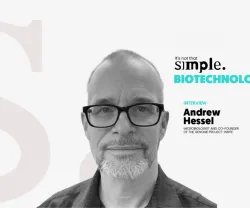«Physics is like a toolbox. And when you understand the tools, you can do more than simply explain the world around you – you can also interact with it», says physicist and oceanographer Helen Czerski. In this interview, she demonstrates that physical patterns are all around us and explains how they shape our daily lives, connecting human life with the planet’s life.
For the researcher at University College London, understanding the world means investigating these invisible patterns, especially those affecting the ocean: how the wind transfers energy to the waves, how sound travels through water to reveal hidden objects and how gases circulate between the ocean and the atmosphere via gas bubbles at the surface of the ocean.
In the North Atlantic, for example, the ocean is inhaling carbon dioxide, taking it out of the atmosphere, while in the tropics, it is exhaling it, releasing it back into the atmosphere. «There is a natural balance between the two», insists Helen. «And what is really useful about this is that we remove that gas from the atmosphere, where otherwise it would have contributed to global warming», she explains.
«These tiny processes, breaking waves and bubbles at the surface of the ocean, may not seem particularly significant», she adds, «but if we measure all the respiration constantly taking place across the planet, we see that the ocean is actually doing us a huge favour».
Those very same gas bubbles revolutionised fishing. Sonar systems, which send sound into the ocean, use them to locate fish. If a fish has a gas bubble in its swim bladder – as most fish do – the sound travels differently through the animal. However, the specialist warns, «this has contributed to overfishing and impacted biodiversity in the oceans».
«The key takeaway from all my work is how incredibly interconnected systems are. In the natural world, what happens in one place has impacts in other places», affirms Helen Czerski, citing how even a whale’s urine influences the balance of ecosystems.
«Whales feed in the Arctic and migrate to the tropics to mate. While mating, they don’t eat, but still produce urine, which deposits nitrogen on tropical islands», explains the BBC presenter. In places like Hawaii, meanwhile, they take shelter on reefs to rear their calves and end up fertilising these environments, which are not naturally nutrient-rich.
But this movement of nutrients has been under threat since industrial whaling began. «We removed one of the mechanisms that made the rest of the system work», and if humanity continues to remove other parts, through overfishing and introducing pollutants to the ocean, «it’s not just a chain that we’ll be breaking, but a whole web of interactions», she maintains.
For the time being, Helen Czerski assures that the planet still has the capacity to resist, but recognises that the balance between human life and that of the planet is changing. «I think we have an enormous problem, but also that we have the means to solve it». What we cannot do, however, is carry on dragging our feet – we must act.
Helen Czerski's publications (University College of London)
«The fascinating physics of everyday life», (TED Talk)
«Climate change: A possible future» (Documentary, FFMS)
«On the trail of whales, orcas and dolphins in Portuguese waters» (Latest, FFMS)
«Como proteger e governar o Oceano?», podcast Da Capa à Contracapa (FFMS)
63

Big issues, big names in a new programme dedicated to interviews with international personalities from the world of politics, economics and society. These conversations with special guests, conducted by journalist Pedro Pinto, aim to simplify and help demystify some of today's most important issues. Every month, on the Foundation's website.


